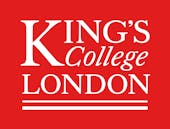David Crankshaw read History at the University of Cambridge, where he wrote a doctoral thesis on ‘Elizabethan and Early Jacobean Surveys of the Ministry of the Church of England’, which is the first stage of a longer-term investigation into aristocratic patronage in the later English Reformation. He taught at Oxford (Lincoln College) and Cambridge (Magdalene College) before arriving at King’s College London in 1998, where he is Lecturer in the History of Early Modern Christianity.
He has had several administrative roles in the department: Personal Tutor (1999–); Acting Tutor for Study Abroad Students (2001); Deputy Admissions Tutor (2001–3); Admissions Tutor (2003–6); deputy Departmental Tutor (2008–9); and Chair of the BA Programme Board of Examiners (2009–).
In 2006, Dr Crankshaw was one of two members of staff in the School of Humanities to be given a Teaching Excellence Award, on the nomination of students. Two years later, he received Half Laurels, awarded by KCLSU ‘in recognition of an excellent contribution to the King’s College London community’.
Dr Crankshaw has read research papers at seminars/conferences held in Cambridge, London, Oxford, York and Salt Lake City. In 2009, he gave a paper (by invitation) to a symposium held at the Humboldt University in Berlin. He has been invited to give a paper at a conference on ‘The Cultural Agency of Chaplains in Early Modern Britain’ organized by the University of Birmingham Centre for Reformation and Early Modern Studies and due to be held in Stratford-upon-Avon in June 2010.
Since 2003, he has been a co-convenor of the seminar on the ‘Religious History of Britain, 15th–18th Centuries’ which meets regularly at the Institute of Historical Research in the University of London. Research interests include: the history of St Paul’s Cathedral in the sixteenth and seventeenth centuries; Matthew Parker, archbishop of Canterbury; aristocratic religious patronage in the English Reformations; the Privy Council and the government of the Elizabethan state; and European confessionalization.
Experience
-
–presentLecturer in the History of Early Modern Christianity, King's College London
- Article Feed
- Joined


